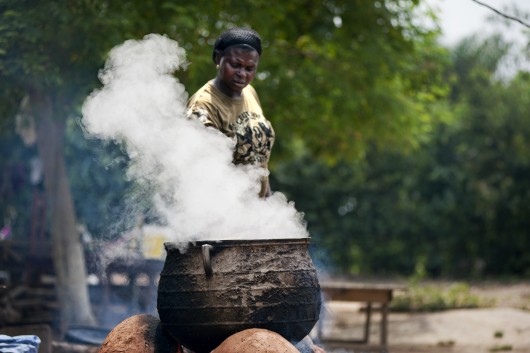Cooking to Produce Electricity in Malawi

Thermoelectric generators that use heat from clay stoves to produce electricity are becoming a popular tool in Malawi where efforts are being made to protect the environment.
Developed with the help of Irish Aid, the thermoelectric generator also provides an affordable option for Malawians to access electricity from a clean energy source.
The device is bolted to a clay cooking stove and uses the heat from everyday cooking to charge devices such as phones, LED lights and radios. The electrical current is created by the differential in temperature between two metal parts.
Malawi is one of the least developed countries in the world. Fewer than one out of every 100 rural people have access to grid electricity and more than 85 percent of people live in rural areas.
Aidan Fitzpatrick, Head of Development at Irish Aid, said, “At the very best by 2025, only 20 percent of the population will have grid electricity, so there will still be a huge need to find energy solutions for the majority of Malawians.”
The Irish aid group worked to create a device that would be easy to use for people and could use while cooking to create electricity. The group focused on a generator that would create and sustain community jobs.
A thermal engineering research group joined with Concern Universal and Irish Aid in Malawi to design an electricity generator that could fit on a clay stove, which are already in use as part of the government’s plan to produce two million clean stoves by 2020.
The group decided to use a trial-and-error design process because there are already many innovative solutions to produce electricity.
According to lead engineer, Professor Tony Robinson, “We needed to design something to withstand an extreme environment, requiring no training or maintenance so people can plug in their phone or light while they’re cooking and get on with their lives without having to go search for firewood every day. On top of that, it had to be cheaply produced in Malawi with locally available materials.”
The generators will eventually be made locally for around 20 euros. Many families in Malawi will be able to purchase the generators through microfinance options.
Concern Universal Project Manager, Blessings Kambombo, said; “Once it is rolled out, it will make a huge difference to rural communities not only by improving their quality of life but providing business opportunities and therefore choices.”
– Jordan Connell
Sources: BBC News, The Irish Times
Photo: Flickr
